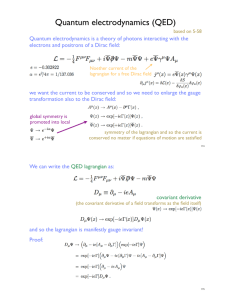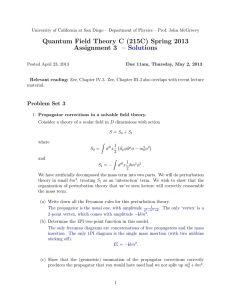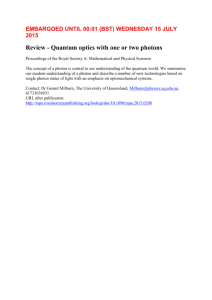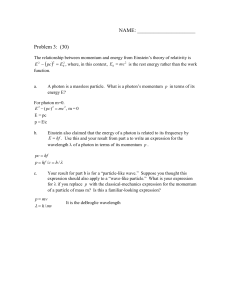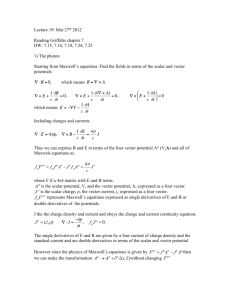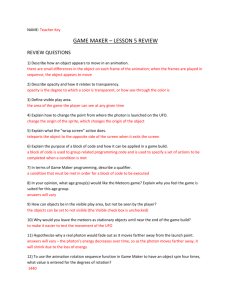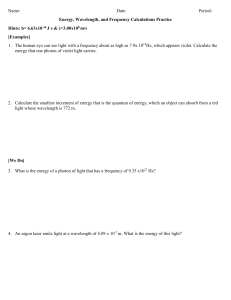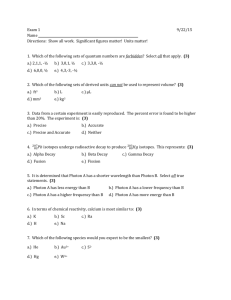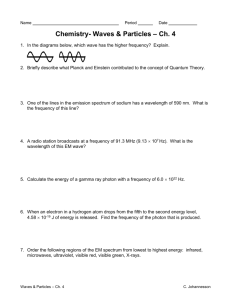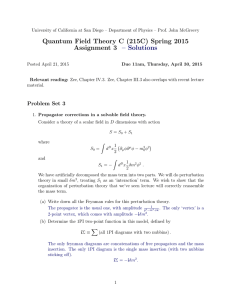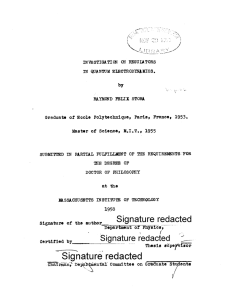Review of Feynman rules for QED
advertisement
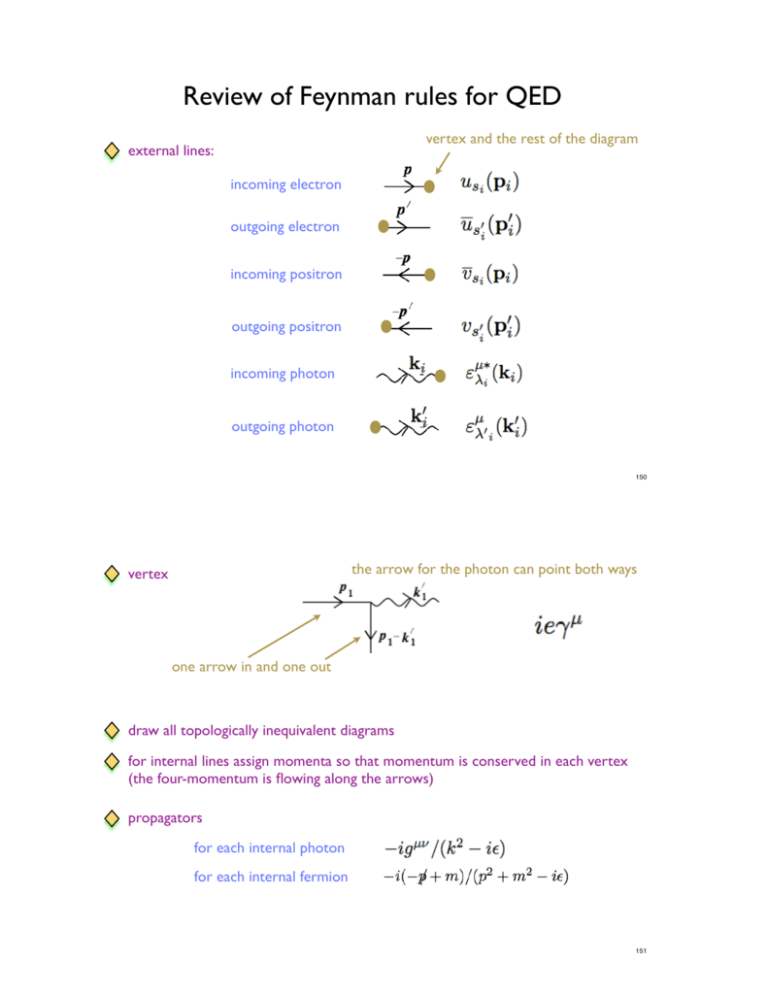
Review of Feynman rules for QED vertex and the rest of the diagram external lines: incoming electron outgoing electron incoming positron outgoing positron incoming photon outgoing photon 150 the arrow for the photon can point both ways vertex one arrow in and one out draw all topologically inequivalent diagrams for internal lines assign momenta so that momentum is conserved in each vertex (the four-momentum is flowing along the arrows) propagators for each internal photon for each internal fermion 151 spinor indices are contracted by starting at the end of the fermion line that has the arrow pointing away from the vertex, write or ; follow the fermion line, write factors associated with vertices and propagators and end up with spinors or . follow arrows backwards! The vector index on each vertex is contracted with the vector index on either the photon propagator or the photon polarization vector. assign proper relative signs to different diagrams draw all fermion lines horizontally with arrows from left to right; with left end points labeled in the same way for all diagrams; if the ordering of the labels on the right endpoints is an even (odd) permutation of an arbitrarily chosen ordering then the sign of that diagram is positive (negative). sum over all the diagrams and get additional rules for counterterms and loops 152 Scalar electrodynamics based on S-61 Consider a theory describing interactions of a scalar field with photons: is invariant under the global U(1) symmetry: we promote this symmetry to a local symmetry: and use covariant derivatives where: so that 153 A gauge invariant lagrangian for scalar electrodynamics is: The Noether current is given by: multiplied by e = electromagnetic current depends explicitly on the gauge field New vertices: 154 Additional Feynman rules: vertex and the rest of the diagram external lines: incoming selectron outgoing selectron incoming spositron outgoing spositron 155 vertices: incoming selectron outgoing selectron 156 Let’s use our rules to calculate the amplitude for and we use : to calculate the amplitude-squared, ... 157 Loop corrections in QED based on S-62 Let’s calculate the loop corrections to QED: adding interactions results in counterterms 158 The exact photon propagator: the free photon propagator in a generalized Feynman gauge or gauge: the sum of 1PI diagrams with two external photon lines (and the external propagators removed) Feynman gauge Lorentz (Landau) gauge The observable amplitudes^2 cannot depend on we saw that we can add or ignore terms containing which suggests: (we will prove that later) 159 and so we can write it as: is the projection matrix we can write the propagator as: summing 1PI diagrams we get: has a pole at with residue In the OS scheme we choose: to have properly normalized states in the LSZ 160 Let’s now calculate the at one loop: extra -1 for fermion loop; and the trace 161 we ignore terms linear in q 162 the integral diverges in 4 spacetime dimensions and so we analytically continue it to ; we also make the replacement to keep the coupling dimensionless: see your homework is transverse :) 163 the integral over q is straightforward: imposing fixes and 164
